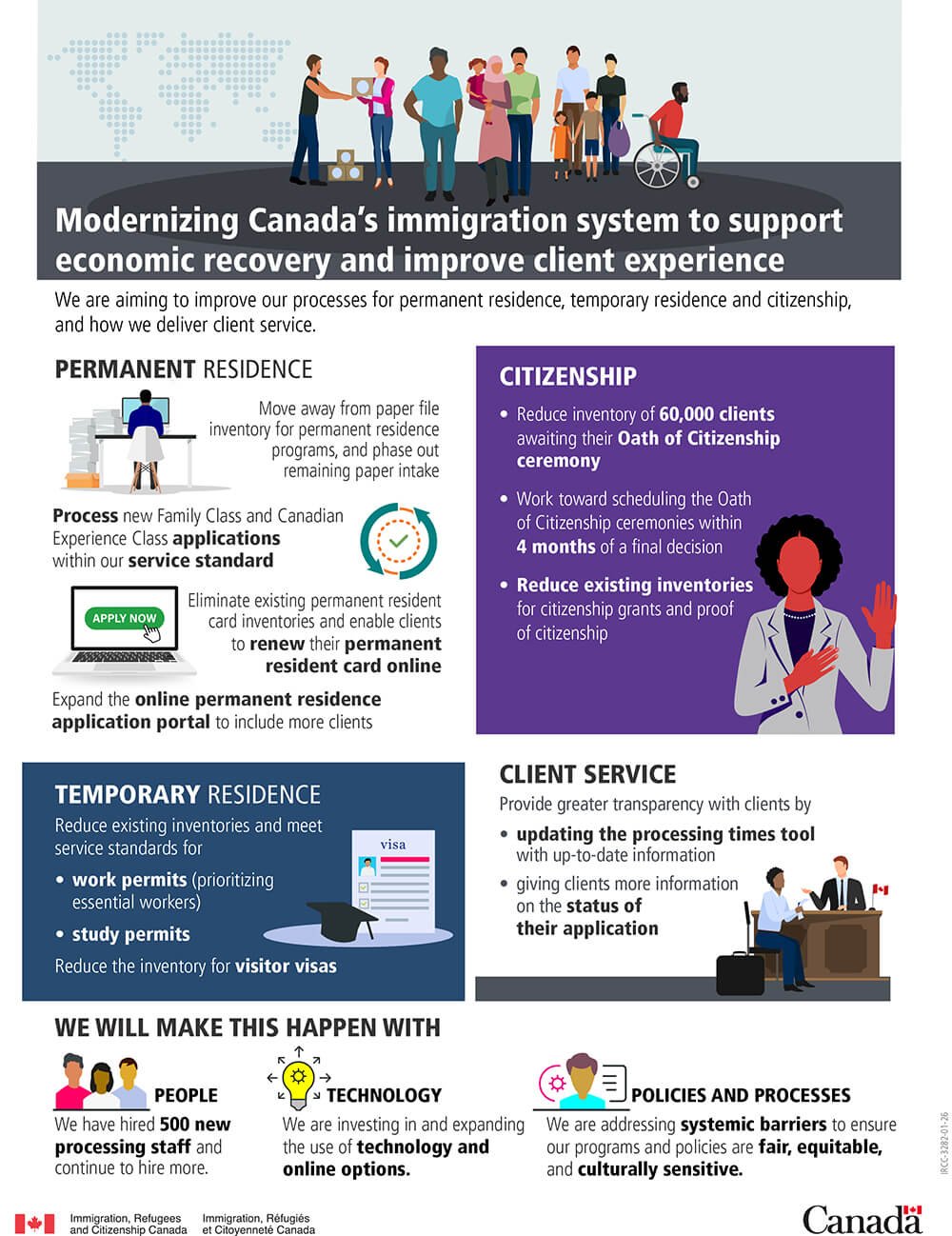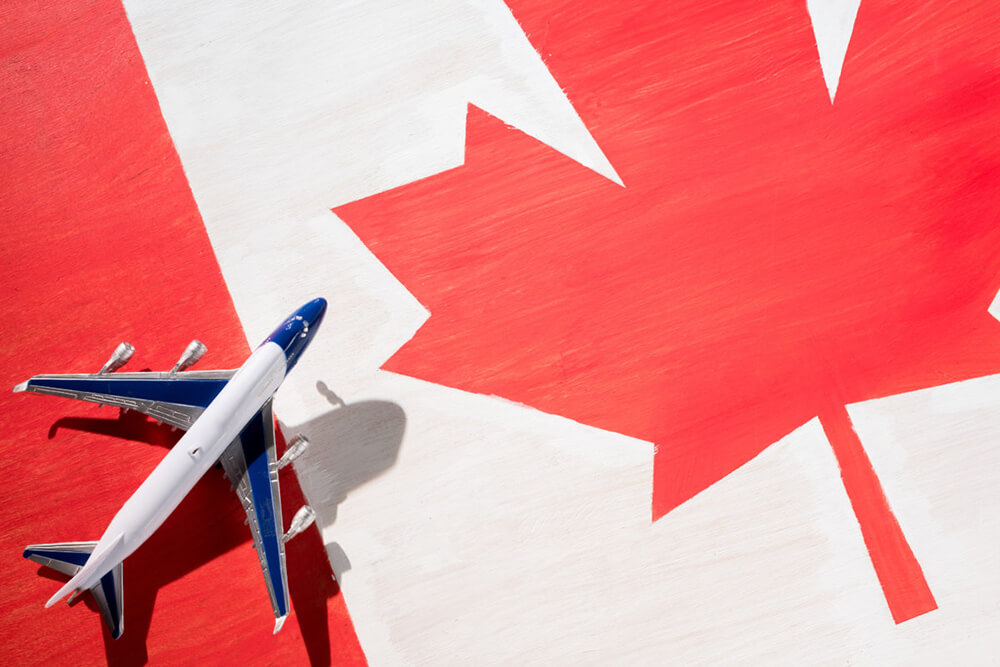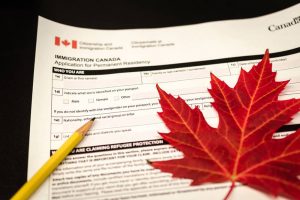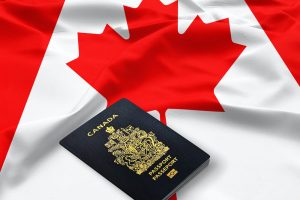Today, the Honourable Sean Fraser, Minister of Immigration, Refugees and Citizenship, announced measures to improve client experience and modernize the immigration system. These measures are part of a broader process to address key challenges faced by the clients and achieve the more predictable processing times that the clients expect and deserve.
Many talented and skilled newcomers have waited long during the pandemic. In the Economic and Fiscal Update 2021, the Government of Canada proposed $85 million in new funding to reduce application inventories. The investment will support additional staff, allowing them to welcome people who can help address labour shortages and to return to processing service standards in various programs by the end of this year, including for study permits, work permits and permanent resident card renewals. They are also working to reduce processing times for visitor visas and proof of citizenship.
These improvements will build on what Immigration, Refugees and Citizenship Canada (IRCC) has already done to reduce wait times, such as hiring approximately 500 new processing staff, digitizing applications, and reallocating work among our offices around the world.
To help accelerate our processing work, they are expanding the use of advanced data analytics in helping officers sort and process visitor visa applications submitted from outside Canada. During the time the data analytics system has been used for visitor visas, it has been shown that routine files can be assessed 87% faster, resulting in some applicants receiving decisions more quickly while program integrity is maintained. An IRCC officer will always make the final decision, but this system will improve client service by helping IRCC manage the increasing volume of visitor visa applications.
To further support permanent residence applicants, they will be expanding the digital application portal to include more clients in summer 2022. The transition to an online application process will minimize COVID-19-related delays associated with processing paper applications and will provide clients with immediate confirmation that their application was successfully submitted. Efforts to date have allowed average processing times for spousal sponsorship applicants to return to the service standard of 12 months for new applications.
For citizenship applicants, IRCC has introduced online testing, developed an online application tracker and launched virtual citizenship ceremonies. Over the last few months, we have hosted approximately 350 virtual ceremonies per month, and more than 170,000 new Canadians have been sworn in since April 1, 2020. They are continuing to expand the use of virtual ceremonies. Moving forward, they are exploring an option for those who wish to self-administer their Oath by signed attestation, and celebrate their citizenship at a later date. This would shorten the waiting time for those at the final stage of their citizenship process.





